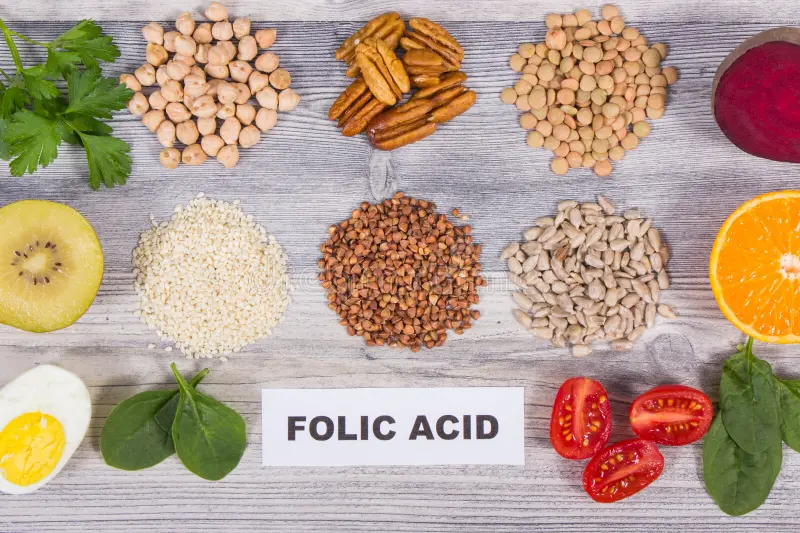Vitamin B6 (Pyridoxine)- Health Benefits and Deficiency Symptoms
Vitamin B6, also known as pyridoxine, is essential for brain function, immune support, and metabolism. This article explores the numerous health benefits of Vitamin B6, its rich food sources, and the symptoms of deficiency, highlighting the importance of maintaining adequate levels for overall well-being.
Health Benefits of Vitamin B6 (Pyridoxine)
- Improves Mood: Helps produce neurotransmitters like serotonin and dopamine, which regulate mood and reduce depression.
- Promotes Brain Health: Supports brain development and function, potentially reducing cognitive decline.
- Boosts Immune System: Essential for maintaining a healthy immune system.
- Prevents Anemia: Aids in the production of haemoglobin, preventing and treating anaemia.
- Supports Heart Health: Reduces levels of homocysteine, protecting heart health.
- Reduces Pregnancy Nausea: Alleviates nausea and vomiting in pregnant women.
- Protects Eye Health: May lower the risk of age-related macular degeneration.
- Aids Metabolism: Crucial for protein, fat, and carbohydrate metabolism.
- Reduces Inflammation: Has anti-inflammatory properties.
- Supports Skin Health: Helps maintain healthy skin by supporting collagen production
Functions and Roles
- Amino Acid Metabolism: PLP is crucial for the metabolism of amino acids, including transamination, deamination, and decarboxylation reactions.
- Neurotransmitter Synthesis: It is involved in the synthesis of neurotransmitters such as serotonin, dopamine, and gamma-aminobutyric acid (GABA).
- Haemoglobin Production: PLP is essential for the synthesis of heme, a component of haemoglobin.
- Glucose Regulation: It helps in the regulation of blood glucose levels by participating in gluconeogenesis and glycogenolysis.
Vitamin B6 is vital for numerous physiological functions, and its deficiency can lead to various health issues, including anaemia, dermatitis, depression, and confusion
Symptoms of vitamin B6 deficiency
Vitamin B6 deficiency can lead to a variety of symptoms. Here are some common signs to watch for:
- Skin Rashes: A red, itchy rash known as seborrheic dermatitis can appear on the scalp, face, neck, and upper chest.
- Cracked and Sore Lips: Cheilosis, characterized by sore, red, and swollen lips with cracked corners, can result from a deficiency.
- Sore, Glossy Tongue: Glossitis, where the tongue becomes swollen, sore, smooth, and inflamed.
- Mood Changes: Increased feelings of anxiety, depression, and irritability.
- Weakened Immune Function: A deficiency can impair immune function, making you more susceptible to infections.
- Fatigue and Low Energy: Persistent tiredness and low energy levels.
- Peripheral Neuropathy: Tingling, numbness, and pain in the hands and feet.
- Anaemia: A deficiency can lead to anaemia, characterized by fatigue and weakness.
- Seizures: In severe cases, a lack of Vitamin B6 can cause seizures.
- Confusion and Irritability: Cognitive issues such as confusion and irritability
Sources of Vitamin B6
Vitamin B6 is found in a variety of foods, both animal and plant-based. Here are some excellent sources of Vitamin B6:
- Fish: Tuna (especially yellowfin and albacore) and salmon are rich in Vitamin B6.
- Poultry: Chicken breast and turkey are good sources.
- Meat: Beef liver and other organ meats contain high levels of Vitamin B6.
- Potatoes: Both white and sweet potatoes are rich in this vitamin.
- Bananas: A convenient and popular source of Vitamin B6.
- Chickpeas: Also known as garbanzo beans, they are a great plant-based source.
- Fortified Cereals: Many breakfast cereals are fortified with Vitamin B6.
- Nuts and Seeds: Sunflower seeds and pistachios are good options.
- Avocados: These fruits are not only delicious but also packed with Vitamin B6.
- Dark Leafy Greens: Spinach and kale are excellent sources.
Safety and Side Effects of Vitamin B6
Vitamin B6 (pyridoxine) is generally safe when taken in recommended amounts, but excessive intake can lead to several side effects. Here are some key points to consider:
Safety
- Recommended Dosage: For most adults, the recommended daily intake of Vitamin B6 is 1.3 to 2.0 mg. The upper limit for adults is 100 mg per day.
Side Effects of Excessive Intake
- Nerve Damage: High doses of Vitamin B6 (over 500 mg per day) can cause nerve damage, leading to symptoms like numbness, tingling, and loss of coordination.
- Skin Lesions: Painful and disfiguring skin lesions can occur with excessive intake.
- Photosensitivity: Increased sensitivity to sunlight, resulting in skin reactions.
- Gastrointestinal Issues: High doses can cause nausea, heartburn, and loss of appetite.
- Ataxia: A lack of muscle control or coordination of voluntary movements.
General Precautions
- Consult a Healthcare Provider: Always consult with a healthcare provider before starting any new supplement, especially if you are pregnant, breastfeeding, or have any underlying health conditions.
- Dietary Sources: It’s generally safer to get Vitamin B6 from food sources rather than supplements to avoid the risk of overdose.
External links
Sources of vitamin B6
Symptoms of deficiency
Benefits of vitamin B6
Side effects of Vitamin B6









Review Vitamin B6 (Pyridoxine).
You must be logged in to post a review.